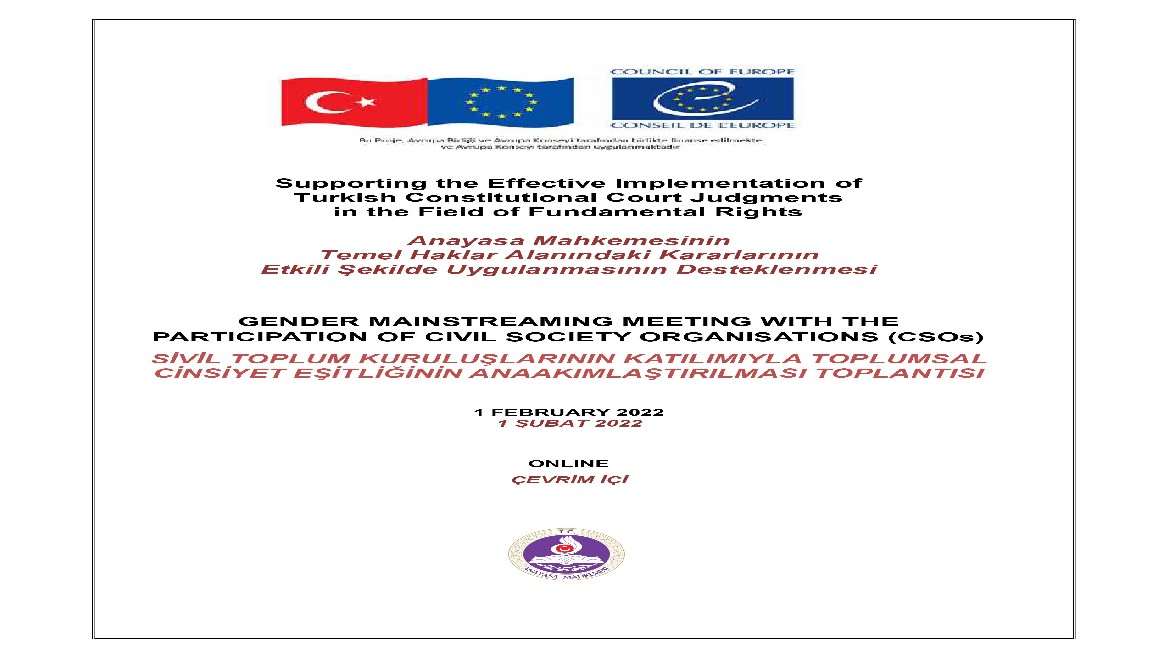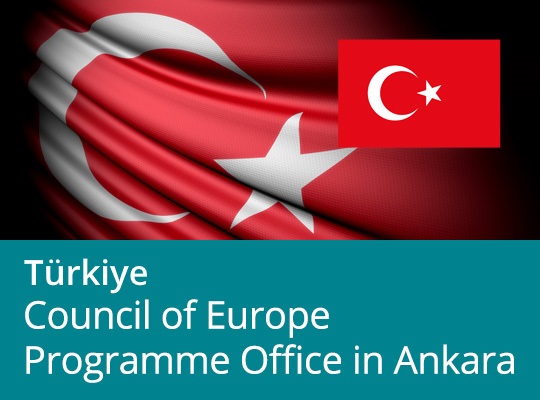The gender mainstreaming consultative meeting was held online on 1 February 20221 with the participation of civil society organisation under the EU-Coe Joint Project on ‘Supporting the Effective Implementation of Turkish Constitutional Court Judgments in the Field of Fundamental Rights’.
Consultant Zehra Tosun, Yasemin Öz (KaosGL), Oya Aydın and İlknur Üstün (Women’s Coalition), Şehlem Kaçar and Burcu Uçuran (Association For Struggle Against Sexual Violence) Gülriz Uygur and Nadire Özdemir (Association for Monitoring Gender Equality), Ezel Buse Sönmezocak (Women for Women’s Human Rights – New Ways (WWHR) and Women’s Coalition), Ulaş Karan – (Bilgi University Human Rights Centre), Umut Rojda Yıldırım (Social Policy, Gender Identity, and Sexual Orientation Studies Association -SpoD), Atty. Huriye Karabacak, including the Project’s team members, attended the meeting.
This first meeting provided the occasion to discuss how the diverse aspects of the gender issue are addressed in the Turkish justice system. The discussions which took place included the topics concerning practical aspects of the issue, such as appointing women judges for gender-based violence cases, lack of will by administrative/judicial bodies to implement Turkish Constitutional Court’s (TCC) judgments when in concern to woman, various challenges in the field of advocacy/litigation for LGBTI+ rights (in light of several individual applications to the TCC being rejected for being inadmissible). The lack of available data on gender-based violence or other issues in relation to gender equality was also underlined as one of the problems due to absence of information on the number of gender-based violence applications brought before the police or before the instance courts. In addition, the full-fledged monitoring of TCC judgements by CSOs are difficult as they have limited power and face financial limitations and capacity development difficulties in general.
After identifying the issues and gaps, proposal for solutions were discussed, among which was capacity building of lawyers, as they provide each other with assistance to prevent simple mistakes which results in the rejection of claims (creating an additional work burden to the TCC) before bringing applications before the TCC. Considering that the instance courts regard the TCC’s judgments as binding, improving inconsistencies within the TCC’s case law would transform judicial practice in Turkey. Creation of a database not only to access relevant judgments for litigation purposes, but also to monitor the consistency of the TCC in its case law could be considered. Among proposed activities were monitoring whether the Turkish National Grand Assembly makes any proposals to revise relevant legal provisions upon TCC’s judgments and what types of measures were taken against judges who do not abide by the TCC’s judgments.
A gender analysis report will be drafted based on the contributions of the relevant project stakeholders, which will be guiding when determining the subjects and content of events and training activities.




